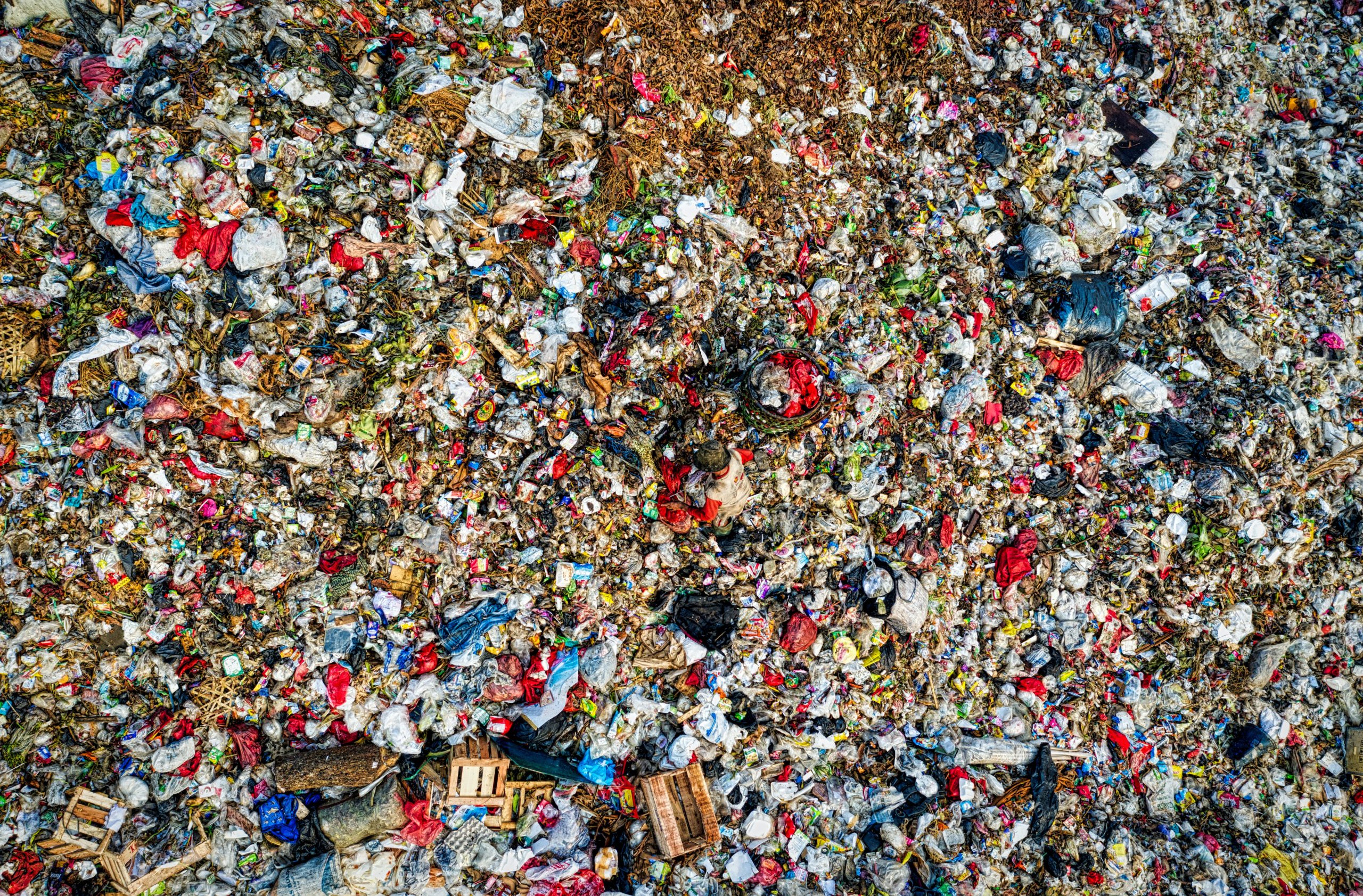
Representational image by Tom Fisk from Pexels

New Delhi generates over 11,400 metric tonnes of waste each day. Of this, nearly 6,200 metric tonnes is dumped at landfill sites in Ghazipur, Okhla, and Bhalswa which are administered by the East, South, and North Delhi Municipal Corporations, respectively.
The three civic bodies are in the process of clearing the legacy waste at the landfills though biomining and will reportedly close them over the next 2.5 years. Recently, the Delhi government even sought Rs 1,755 crore in financial aid from the Centre for this purpose.
GreenTech Environ Management Pvt Ltd is one of several commissionaires involved in segregating legacy waste at the Bhalswa and Okhla sites. SolidWasteIndia spoke with Mr Ramakant Burman, Managing Director – GreenTech Environ Management Pvt Ltd, based in 24 Parganas, West Bengal regarding the project.
Q1. GreenTech is mainly into biomedical waste management in West Bengal. How did you get involved in the Delhi bio-mining projects?
GreenTech Environ is managing biomedical waste in West Bengal since 2011. We operate three Common Biomedical Waste Treatment Facilities (CBWTF) in the state. GreenTech was the first CBWTF in West Bengal to install an online air quality monitoring system as per CPCB Guidelines. In 2017, we won the Kolkata Green Future Leadership Award for service towards preservation of the environment by providing proper biomedical waste treatment services at all health care establishments in West Bengal.
After achieving success in the BMW market, GreenTech ventured into solid and plastic waste management since there is so much growth in this sector. In 2021, we got involved in biomining and are working with 17 ULBs at dumpsites across WB. In July 2021, we won the contract for the Okhla and Bhalswa biomining projects for Rs 306 per ton of segregated waste.
Q2. Could you share more details regarding your contract with the civic body?
We have a one-year contract with the North Delhi Municipal Corporation which is the nodal body among all the three Municipal Corporations for hiring contractors for biomining and bioremediation of legacy waste at the three landfills.
Our job is to biomine and segregate legacy waste for further processing. We only segregate this waste and it is the ULBs’ responsibility to transport the different fractions, including RDF, good earth, and inerts for further processing. There are almost 30 contractors working at Bhalswa.
Q3. What kind of equipment and manpower are you using for biomining?
GreenTech provides tailor-made technological solutions for waste management, depending on the nature of waste and its characteristics. For instance, given the large volume of waste at the Delhi landfills, we have imported two screening machines from Wirtgen (Kleemann MS 952 EVO) from Germany which have a feed capacity of 500 tph each. We have installed one machine each at Bhalswa and the other at Okhla. We have about 25 workers deployed at each site.
Q4. What sort of materials are being recovered and how are you dealing with them?
Almost 80 percent of the material recovered is good earth, which can be used as fertilizer for non-food items. Around 10 pc is inert waste, comprising construction and demolition waste. We are also recovering substantial quantities of RDF fraction (cloth, plastic, leather, etc) that need to be transported for further processing.
Despite our large feed capacity, we are currently only screening about 100 tph since the civic body is unable to transport the waste efficiently from the site. The problem is that trommel operators have also been assigned the task of waste transportation, which is a conflict of interest. They prioritise the transportation of their own segregated waste over those of other concessionaires like us. Our machines are at the site since October but it’s really difficult to operate at maximum efficiency levels due to such reasons.
Q5. You recently even shared a post on social media platforms seeking vendors who could take away the RDF from the site. Could you please elaborate on your concerns?
Transportation of segregated waste is a major concern at the Bhalswa and Okhla legacy waste sites. The ULB is unable to provide efficient and regular transportation of the waste we are biomining and segregating. Hence, I have to repeatedly resort to social media and Whats App groups to request pick-ups. Thankfully, people are responding to my request and coming forward. We recently had a cement company pick up RDF from us.
Q6. What are some of the challenges associated with this bio-mining project?
The Delhi civic authorities need to be more pro-active and review the biomining process at regular intervals to ensure that it is progressing smoothly. Timely transportation of the segregated waste from the processing site is a major hurdle. The constant delays impact our ability to sort and segregate legacy waste. If the civic body takes it away in a timely manner, we can work faster to clear Delhi’s landfills. Such bureaucratic hurdles are posing a major problem.



